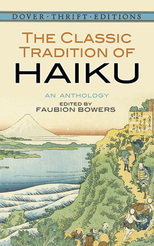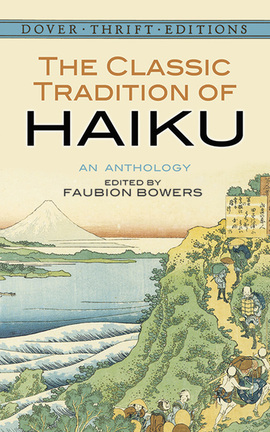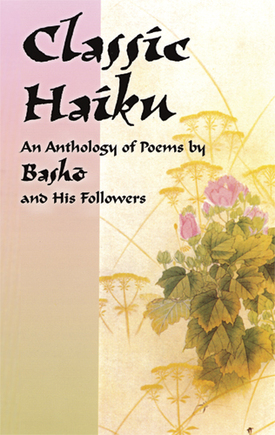Haiku Classic Poetry |
|
|
How These Two Books Helped Me to Write Haiku PoetryPoetry is such a unique way to find beauty in words. When I try my hand at writing the Haiku poetry form, I connect to it at several levels.
In some ways, it is like an intellectual game to play. In fact, I discovered a way to enjoy composing poems while driving long distances in my car. To write well, you must study literature. To learn about Haiku and to study its form, you must read Haiku poems. It also helps to learn a bit about the history of the art form itself. These two books gives the student of Haiku a strong beginning. For those who would like to write their own poetry, you might like to start with this O, Sweet Nature article How to Write Haiku Poetry. Classic Haiku: An Anthology
With the utmost economy and skill, the haiku poet paints a vast mural on a narrow canvas. Working within the strict traditional Japanese form, Matsuo Basho (1644–1694) and other masters evoke elements of the natural world to conjure up timeless moods and emotions. This volume features dozens of Basho's poems as well as works by his predecessors and ten of his disciples — Kikaku, Ransetsu, Joso, and Kyoroku among them. Intended principally for readers with no knowledge of Japanese literature, this treasury includes the original Japanese text, a transliteration, and English translations for each verse; most poems also include a brief explication. Reprint of An Anthology of Haiku Ancient and Modern, Maruzen Company Ltd., Tokyo, 1932. The Classic Tradition of Haiku
This unique collection spans over 400 years (1488–1902) of haiku history by the greatest masters: Bashō, Issa, Shiki, and many more, in translations by top-flight scholars in the field. Haiku commands enormous respect in Japan. Now readers of poetry in the West can savor these expressive masterpieces in this treasury compiled by noted writer Faubion Bowers, who provides a Foreword and many informative notes to the poems. |

The Classic Tradition of Haiku
This unique collection spans over 400 years (1488–1902) of haiku history by the greatest masters: Bashō, Issa, Shiki, and many more, in translations by top-flight scholars in the field |


